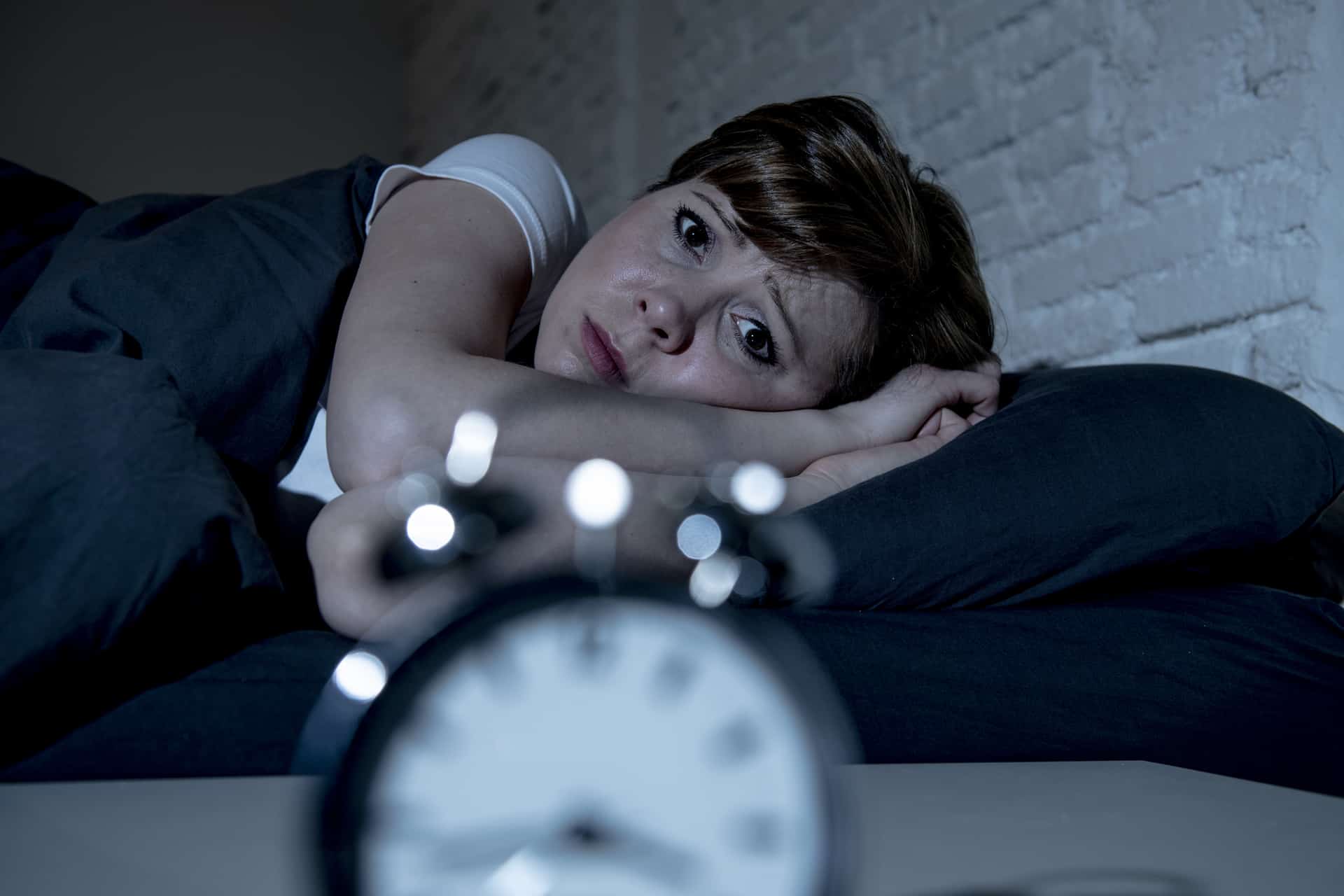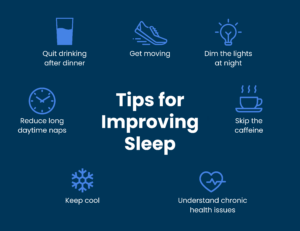Sleep is one of the most important activities in the day not only for recuperating the body but the mind as well. Regrettably, many people have trouble getting enough sleep owing to a variety of factors including stress, lifestyle choices or certain medical conditions. The consequences of lack of sufficient quality sleep are worse than just fatigue, feeling exhausted and sleepy during the day, it can have massive implications on one’s mental health. It might be imperative to comprehend the adverse effects of sleep deprivation on brain functioning and emotions to appreciate the importance of slumber in sustaining balance of emotions and cognitive performance.
Impact on Everyday Tasks and Memories
One of the first signs of poor sleep is the impaired cognitive functioning that a person experiences. The need for sleep which remains unfulfilled higher or poorer quality sleep can severely damage the brain’s capability of performing focus, paying attention and solving problems. Sleep loss increases the risk of impairing the hippocampus, a region of the brain involved in memory and learning. Throughout the night, our brains work by clearing and filing information into memory brought from the day whilst also turning it into forming memories for the day. If one is unable to sleep for the needed duration so the resting period in the day is disturbed, this cycle is disturbed, as a result of which an individual struggles with amnesia, is perplexed and finds it difficult to learn anything new.
A person’s memory, attention span, and the swiftness with which they make decisions and judgments are negatively impacted when they do not sleep well. Such cognitive deficits have the potential to impact one’s work performance, academic achievements, or even the ability to complete mundane daily activities and, in this way, add to the individual’s stress and frustration.
Increased Anxiety and Stress
Sleep ensures that one’s emotions as well as stress are kept at a regulated level. If the antidote of stress, which is sleep, proves to be inadequate, then the muscle, which is the body in this case, becomes capable of handling stress. There are studies which indicate poor sleep to be an attributing factor in chronic anxiety or stress tendencies. During sleep, hormones that facilitate stressful reactions such as cortisol are rebalanced. Sleep interruptions however do not allow for this to take place resulting in stress levels or “everyday stress” to be overwhelming post the minimal quality of sleep.
Furthermore, sleep deprivation has been shown to activate the body’s survival instinct. As our brain becomes deprived of sleep, it results in an increase in anxiety, irritability and nervousness which then ends up amplifying the stress experienced by the brain, ultimately forming a cycle. This cycle discouraging restful sleep.
Depression and Emotional Instability
The relation between sleep and depression is somewhat evident. Insomnia is both a consequence and a cause of some variations in depression and other mental disorders. Depression is characterized by a decrease in serotonin and dopamine levels and their receptor’s distribution. Due to their receptor’s variations, individuals who are depressed might be less motivated towards accomplishing their aims more than others.
Furthermore, symptoms and consequences of sleep deprivation, such as extreme irritability, can affect one’s mental stability. Most studies show that individuals suffering from insomnia tend to become depressed over time. Those who are depressed also claim to have difficulty falling and staying asleep. As one condition worsens, it adversely impacts the other and places the sufferer in an endless struggle.
Impaired Decision-Making and Risk Taking Behavior
The Prefrontal cortex of the brain which governs decision making, control, and self-assess, can be affected by sleep patterns. Someone experiencing these factors may have trouble judging the significance of things, which impedes their planning as well. Their overall sleep-wake cycle becomes disturbed leading to this which affects various choices, even their occupational ones.
It has been discovered that individuals who struggle to have a good night’s rest are more prone to engage in activities like substance abuse or rough driving among other high-risk bearing factors. With regards to an individual’s work setting, lack of sleep can impede their decision making ability while also ensuring that their overall productivity is low. Pertaining to their personal space and with a high likelihood of being irritable, it can result in one having conflicts and affecting relationship due to the inability to emotionally manage oneself.
The likelihood of a particular person developing a mental disorder increases in accordance to the amount of sleep that they lose out on. Problems relating to bipolar disorder, anxiety, PTSD, schizophrenia and depression has been found to emerge from issues faced during sleeping. Treating these disorders becomes adopting proper sleep schedules as depriving oneself of sleep widens the gap for these disorders.
People who have gone through trauma also experience disturbances in trying to have a good night’s rest and increasing difficulty in being able to function. Those battling bipolar disorder experience extreme mood changes due to sleep deprivation which results in them being depressed or feeling manic. Furthermore, these factors all combined contribute to an individual deteriorating mental stability overtime making it extremely hard to balance out and manage these peculiar natures.
Decreased Emotional Strength
The ability to recover from stress or adversity is referred to as emotional resilience, and it is dependent on sleep. In other words, a person who sleeps well is able to face challenges and recover more easily compared to one who is sleep deprived. But when sleep is not well, it on the contrary reduces this ability, which also makes it hard to remain optimistic or manage stress.
Moreover, with inadequate sleep, the management of emotional responses by the brain is diminished, resulting in feelings of distress and an impaired integrated feeling state. As such, small challenges can seem too big for one to handle, and defense mechanisms are rendered to be less effective, whereby one ultimately feels conquered or exhausted.
Chronic Sleep Deprivation and Social Dynamics
Mental health is not only an area of focus for individual welfare only but rather goes beyond the individual to affect social interactions. For example, focusing on the impact of sleep, if a person suffers from insomnia they are likely to withdraw from social contact, become irritable, or find it difficult to have a conversation. Over time, persistent lack of sleep can make a person more irritable, biased towards other people and more likely to misunderstand social scenarios. This has an adverse effect on their relationships with their family, friends, and even colleagues, which makes it even more difficult to build and sustain healthy social relationships.
In some instances, the poor sleep suffered who sleep deprivation leads to a lack of engagement with others or isolation. Such an isolation might in turn contribute to the onset of depression and feelings of loneliness which are also detrimental to the mental well-being of the person.
Conclusion
The impact that poor sleep has on mental health is extensive and devastating. Sleep enhances the efficiency of the brain, the emotions, helps to relieve stress and is vital for good health. If a person is unable to get enough sleep, both his body and brain fail to cope up and the equilibrium gets disturbed giving rise to mild depression, increased anxiety and other cognitive problems and even paving way for more critical psychological problems. The importance of night rest cannot be overemphasized for bettering the mental health and psychosocial status of the person. One thing which is evident now is that sleep is not a luxury, it is an absolute requirement for optimal health.




